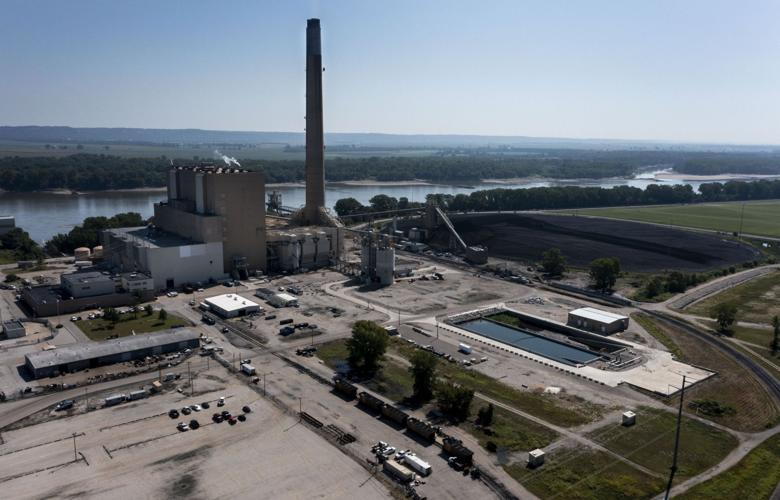ST. LOUIS — The future of Ameren Corp.’s second-biggest coal plant is shifting back to a judge’s hands after a heated back-and-forth over the retirement of the facility that has fueled a decade of courtroom controversy.
The U.S. Department of Justice blasted the ӣ����Ƶ-based electric utility in a recent court filing, arguing the company has been dragging its feet, and should close Rush Island Energy Center in Jefferson County with speed.
But, late last week, the ӣ����Ƶ-based electric utility shot back, saying that the early retirement of the power plant “is not a simple matter.”
“Rush Island cannot be hastily disconnected from the grid without careful evaluation of potential impacts,” Ameren said in its filing, referencing possible effects on the stability and reliability of the broader electric grid and transmission system.
People are also reading…
The company is now studying those possible impacts alongside the regional grid overseer, the Midcontinent Independent System Operator.
The legal saga at Rush Island goes back more than a decade, when illegal modifications were made to the 1970s-era plant that enabled Ameren to run the facility’s generators more, and emit more pollution. In recent years, multiple court rulings against Ameren left it with a decision to either install expensive pollution controls estimated to cost up to $1 billion, or to close Rush Island ahead of its 2039 schedule.
In mid-December, Ameren announced it would close the plant by 2024, 15 years early.
But, late last month, the DOJ argued in court filings that Ameren should have begun studying the effects a Rush Island closure much sooner — such as five years ago, when the company was originally found liable for Clean Air Act violations and excessive pollution at Rush Island.
Ameren, the DOJ alleged, has dragged its feet throughout the legal fight — and is now looking to further milk the clock to its advantage, with a “drawn out” plan engineered for its own benefit.
“It has been more than a decade since Ameren should have installed life-saving pollution controls when it reconstructed the Rush Island plant,” the DOJ said in the filing. “It has been five years since Ameren was found liable under the Clean Air Act for failing to install those controls. And it has been two years since this Court put Ameren on a court-ordered schedule to finally come into compliance.
“Now, Ameren has decided it would rather just retire the Rush Island plant after all.”
Citing an earlier ruling, the DOJ said that Ameren has “already reaped significant financial benefits” from its unlawful modifications at the plant, and from the still-uncontrolled emissions of pollutants like sulfur dioxide, which contributes to a range of health problems.
“Any delay in the plant’s shutdown will come at the expense of human health and welfare,” the DOJ filing said.
On Friday, Ameren replied to the DOJ in court. It argued that the DOJ’s filing “mischaracterized” and attributed “a bad motive” to the company’s actions.
“Ameren was not sitting on its hands,” the company said in the filing.
Ameren said it could not have filed certain notices to the regional grid operator prior to this point, since the utility “did not make a definitive decision” to retire Rush Island until last month. It added that any analysis conducted upon the initial finding of liability in the case “would be useless today, five years later.”
The company also has relatively new options available to it, which offer financial incentives to close the plant that hadn’t been in place before. For instance, a financing policy called securitization, newly passed by Missouri lawmakers, enables Ameren to close coal plants early and redirect stranded investments toward cheaper alternatives, like renewable energy projects. The process spares utilities the financial harm of an early plant closure, and also allows captive customers to save money through reduced power costs.
Without securitization in place, Ameren plants would face issues of “stranded assets,” since ratepayers are still on the hook to pay off billions of dollars of debt from investments in the company’s coal fleet.
Despite its years of legal battles and appeals to keep Rush Island running, the company said its recent proposal for early retirement is the best move economically and environmentally, and “will be in the best interests of the public” and all involved.
The company said that it has not identified nor proposed a specific date for Rush Island to close, because the study on impacts to the grid remains ongoing.
Ameren proposed holding a hearing in the legal case next month, after analysis by MISO is expected to be complete.
The case is in front of U.S. District Judge Rodney Sippel.











